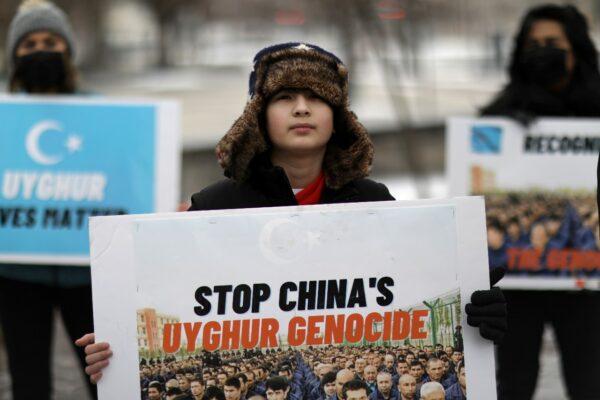Canadian pension holders are exposed to companies complicit in crimes against humanity through passive investment via Morgan Stanley’s Emerging Markets Index Fund and Morgan Stanley’s China Index Fund, according to the report, published on Nov. 21 by the UK-based NGO Hong Kong Watch, in collaboration with professor Laura Murphy at the University of Sheffield Hallam.
The three federal pension funds include:
Canada Pension Plan Investment Board
Public Sector Pension Investment Board
The Civil Service Superannuation Board
The six provincial pension funds include:
British Columbia Investment Management Corporation
Investment Management Corporation of Ontario
Alberta Investment Management Corporation
Caisse de dépôt et placement du Québec
The Ontario Pension Board
Local Authorities Pension Plan (Alberta)
Genocide
On Oct. 25, the House of Commons adopted a motion asking MPs to endorse a report from the Standing Committee on Citizenship and Immigration that calls on the federal government to provide a safe haven for Uyghurs and other Turkic Muslims who are targets of “an ongoing genocide“ at the hands of the Beijing regime.
Dennis Kwok, senior fellow at Harvard Kennedy School, said in the report that international companies need guidance on how to approach issues of human rights violations involved in their supply chains.
“Boards and investors require information on which suppliers are operating supply chains complicit in modern slavery, which firms are buying materials from them, and what the end products are. As international companies begin to take ESG [environment, social, and governance] more seriously, the “S” component must not be overlooked. Proper weight must be given to human rights violations in the ESG metrics and regulatory frameworks,” Kwok said.
“Financial regulators in New York, London, and the European Union need to hold firms responsible for their ESG pledge and statements. This would force companies and investors to undertake a more comprehensive due diligence process with a focus on human rights violations.”
China Profile
The Hong Kong Watch report said of the 12 Chinese companies identified on the MSCI China Index, six have obtained Uyghur labourers through state-sponsored labor transfers, and six have been involved in constructing internment camps or the repression apparatus in the Uyghur region.The organization also said Morgan Stanley continues to have holdings in Chinese companies through its Emerging Markets Index Fund, China Index Fund, and All World Index ex-USA, despite numerous credible evidence showing these companies’ involvement in Beijing’s persecution of Uyghurs.
Of the 13 companies the report identified on the MSCI Emerging Markets Index, seven companies have obtained Uyghur laborers through the state-sponsored labour transfer programs that have been identified as forced labour by experts, and six have been involved in constructing internment camps or the repression apparatus in the Uyghur region.
Out of the four companies identified on the MSCI All-Country World Index ex-US, two have obtained Uyghur labourers through state-sponsored labor transfers, and two have been involved in constructing internment camps or the repression apparatus in the Uyghur region.

Conservative MP Michael Chong, who serves as his party’s foreign affairs critic and vice-chair of a House committee on Canada-China relations, told the Star that the government should take leadership to “close a loophole” on these issues of human rights violations through the various tool it already has.
“Canada is already party to international agreements, like the 1948 Genocide Convention, that put an onus on Canada to ban importation of goods made from forced or slave labour,“ he said. ”But our enforcement hasn’t extended to a ban on investments on the very same companies complicit in gross human rights abuses like genocide in Xinjiang.”
“The government has to close that loophole and make it clear that Canadian investors cannot directly or indirectly invest in companies complicit in genocide,” Chong said, adding that the Canada-China committee will hold two hearings on the issue in the coming weeks.





